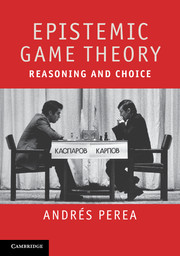1 - Introduction
Published online by Cambridge University Press: 05 July 2012
Summary
One thing I learned from Pop was to try to think
as people around you think.
And on that basis, anything's possible.
Al Pacino alias Michael Corleone
in The Godfather – Part II
What is this book about? In our lives we are continuously asked to make choices – small choices about daily issues, but also big choices with important consequences. Often, the final outcome of a choice does not only depend on our own decision, but also on decisions made by other people surrounding us. For instance, if you are about to meet a couple of friends in a pub this evening, then whether you have to wait for your friends or not depends on your own arrival time, but also on the times your friends arrive. And if you are at a flea market negotiating about the price of a rare Beatles record, then the final price will not only depend on your own bargaining strategy, but also on that of the seller.
Such situations, in which the final outcome does not only depend on your own choice but also on the choices of others, are called games. The discipline that studies such situations is called game theory. The name game theory is perhaps a bit misleading as it suggests that its main application is to recreational games – such as chess or poker – but this is not true. In fact, game theory can be applied to any situation where you must make a choice, and in which the final outcome also depends on the decisions of others.
- Type
- Chapter
- Information
- Epistemic Game TheoryReasoning and Choice, pp. 1 - 10Publisher: Cambridge University PressPrint publication year: 2012



